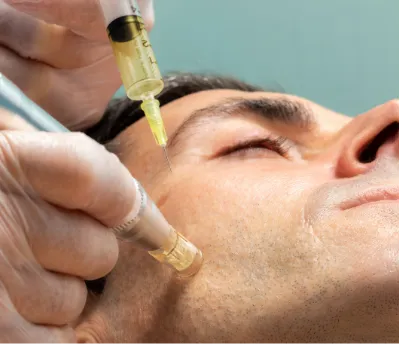PRP vs. HA Filler: Why Choose PRP?
Both platelet-rich plasma (PRP) and hyaluronic acid (HA) fillers are popular injectable treatments, but they work very differently:
-
HA fillers restore lost volume by physically filling wrinkles, folds, and hollows. Results are immediate but temporary (usually 6–12 months).
-
PRP uses your body’s own growth factors to stimulate collagen, elastin, and cell regeneration. Instead of just filling, PRP helps the skin repair and rejuvenate itself from within.
Benefits of PRP Over HA Fillers
-
Natural & Autologous
PRP comes from your own blood—no synthetic materials—so the risk of allergic reaction or rejection is virtually zero. -
Collagen Stimulation
PRP encourages your skin to produce its own collagen and elastin, leading to gradual, long-lasting improvement in skin firmness and elasticity. -
Skin Quality Enhancement
While HA fillers mainly add volume, PRP improves overall skin health—tone, texture, hydration, and radiance. -
Long-Term Results
PRP doesn’t just “mask” wrinkles; it triggers biological repair, which means results can continue to improve for months after treatment. -
Versatile Uses
PRP is not only used for facial rejuvenation, but also for under-eye hollows, acne scarring, hair restoration, and even improving skin on the neck, décolleté, and hands. -
Safe for More Patients
Because it’s 100% natural, PRP is a great option for patients who want rejuvenation but may not be ideal candidates for fillers—or for those who prefer a more holistic approach.
